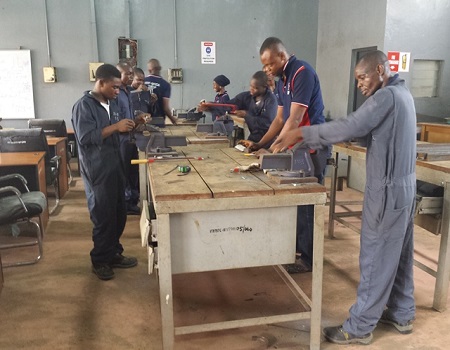The essence of university education has been defeated in Nigeria. In the real sense, not everyone should be in the university, as the university is meant for individuals with a high level of thinking, innovation, problem solving and sound reasoning. Many entrants into Nigeria’s university fail to meet these requirements, hence the problem with many graduates unable to reason properly. The best brains in the nation are meant to be nurtured in the university.
The universities are meant to be researching citadels where new ideas are required to power local industries and organizations, while evolving new strategies to enhance economic productivity. Until we go back to the basics of education and learning in Nigeria, we will continue to produce sub-standard graduates in quality and quantity.
Handicraft is entirely another different world, required for people who harness the practicality of the ideas being developed in the universities, and churn it out in massive industrial productions. Therefore, I believe both handiwork and education are important in today’s Nigeria. With the latest and shameful graduate employability ratio, a small handcraft skill or buy and sell enterprise is far more lucrative than even a logistics truck driver job offer for graduates if capital and little finance is not abridged.
Getting educated on the other hand is very important as it sorts you out of taking slow decisions in business and personal obligations. Education helps to enhance skill
In Nigeria, the school systems are mostly based on theory, and the practical lessons have no content of reality of life outside, thus limiting the capacities of student to get employment or engage in self employment ventures. We see many students leave school and cannot represent themselves in any forum, or show intelligence even in the field of study they so prefer. The community sees all who have been to school as people made for white collar jobs (office jobs) and these affect the students from venturing into small personal business or engage in other innovative thinking, being that they are a subset of the community.
I see this as a failure of the educational system and a narrow approach to the celebrated curriculum and therefore recommend learning for all, at all levels to gather information, generate ideas and discover hidden capacities that are needed for the turnaround in the country.
Vocational training which was once a perfectly respectable, even mainstream educational path came to be viewed as a track for poor students. People have huge and diverse range of skills and learning styles.
The Nigerian economy is changing. The manufacturing sector is growing and modernizing, creating a wealth of challenging, well paying highly skilled jobs for those with the skills to do them. The demise of vocational education at the secondary school level has bred a skills shortage in manufacturing today. Many of the jobs in manufacturing are attainable through apprenticeship, on-the-job training, and vocational programmes offered at community colleges. They don’t require expensive, four-year degrees for which many students are not suited.
Lanre Akinbo,
Lagos.






